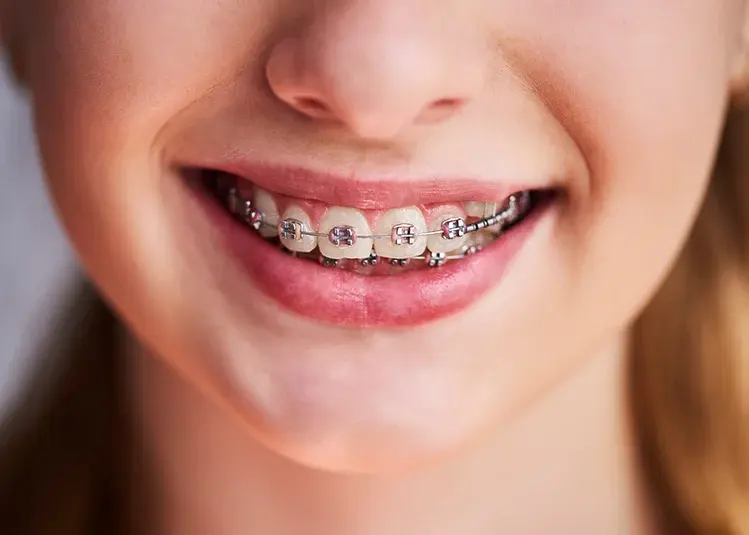Congratulations on starting your journey to a straighter smile and better oral health! As beneficial as orthodontics can be for your long-term oral health, it’s critical to take excellent care of your teeth while you’re in braces. Our complete guide will help you protect your teeth and gums until your braces are complete.
Hygiene Instructions
- Brush after every meal or at a minimum twice a day for two minutes at a time. Start on the upper right side of your mouth and be sure to brush above and below your braces, holding the brush at a 45° angle. Slowly work your way to the front, then over to the top left and then wrap around to the inside. Finish with your chewing surfaces. Repeat in the lower arch.
- Tip: Replace your toothbrush or power head every three months.
- Google/YouTube: “How to brush and floss with Braces.”
- Floss before you brush. Try to floss daily but 3-4 times per week at a minimum. Use Platypus Flossers or Waterpik to clean the areas between your teeth.
- Tip: Floss while watching TV, studying or listening to music.
Dietary Instructions
- Make wise food choices. Hard or chewy foods can damage your orthodontic appliances causing delays in your treatment and extra appointments. Avoid the following:
- Foods to avoid: Popcorn (especially the husks and un-popped kernels), meat on bones, nuts, ice, hard candies or chips, candied apples, corn on-the-cob, sticky gum, caramels/toffee and other chewy candy.
- Never bite into: Be careful when you eat carrots, apples, hard breads, and big sandwiches. Cut them into small pieces.
- Avoid as much as possible: Candy, cakes, pies, cookies, jellies, soda, and other foods high in sugar content. Sugar rapidly forms damaging deposits on teeth and these foods should be avoided as much as possible.
- Curb those bad habits. Try not to bite your lips or fingernails. Don’t fiddle with your braces with your fingers or tongue. Don’t chew pencils or pens.
General Instructions
- Initial Discomfort
- Some discomfort is to be expected for a few days up to a week following the placement or adjustment of appliances.
- Aspirin or similar medication may be taken if needed.
- Sometimes the cheek, lips, or tongue may become irritated by the appliances (canker sores, scraped cheeks, etc.). This is especially common when appliances are first placed in the mouth.
- A small amount of wax or wet cotton may be applied directly to the metal part to relieve the irritation until the tissue adapts. If you need more wax, please call our office or ask us for it at your next appointment.
- If canker sores develop à Rinse with a teaspoon of salt in a glass of warm water several times a day.
- Some discomfort is to be expected for a few days up to a week following the placement or adjustment of appliances.
- Sports Considerations
- If you play any contact sports (football, hockey, basketball, football, etc.), a braces-specific mouthguard is recommended to help prevent tooth loss of injury.
- Ex. Shockdoctor mouthguards
- If an accident occurs in which there is a blow to the teeth or mouth à check for loose appliances and immediately call to schedule an emergency appointment (just to check to make sure everything is okay!)
- If you play any contact sports (football, hockey, basketball, football, etc.), a braces-specific mouthguard is recommended to help prevent tooth loss of injury.
- What to do about a problem
- If any of your wires pop loose and you are uncomfortable
- Cover with wax or wet cotton and contact our office.
- If any pieces (Brackets) break or fall off
- If no pain is experienced à no need to make an emergency appointment, we will replace brackets at your next adjustment as needed.
- If appliance (Expander, Space maintainer, etc.) breaks or falls out, contact our office and next steps will be determined
- If any of your wires pop loose and you are uncomfortable


